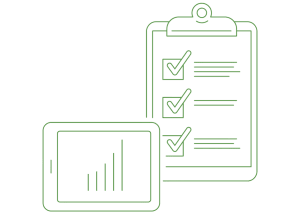Servizi ESG e sostenibilità aziendale
In RSM affianchiamo le aziende in un approccio integrato alla sostenibilità aziendale, mettendo a disposizione competenze interdisciplinari in governance aziendale, Green Taxonomy UE, processi produttivi e catena del valore. In particolare, offriamo servizi ESG volti alla pianificazione di strategie di decarbonizzazione e transizione energetica, nonché all’adozione di modelli di economia circolare.
Integriamo inoltre analisi di scenario climatico e definizione di obiettivi di neutralità delle emissioni per guidare la transizione verso il net-zero. Supportiamo l’azienda anche nella gestione dei rischi e delle opportunità legati ai fattori ESG lungo l’intera catena del valore, con politiche di approvvigionamento sostenibile e tutela dei diritti umani.
Infine, mettiamo a tua disposizione soluzioni avanzate per la rendicontazione e l’assurance ESG, garantendoti sempre report di sostenibilità trasparenti e affidabili.
Our ESG Services
Contact us
Complete this form and you will be put in touch with an RSM representative




